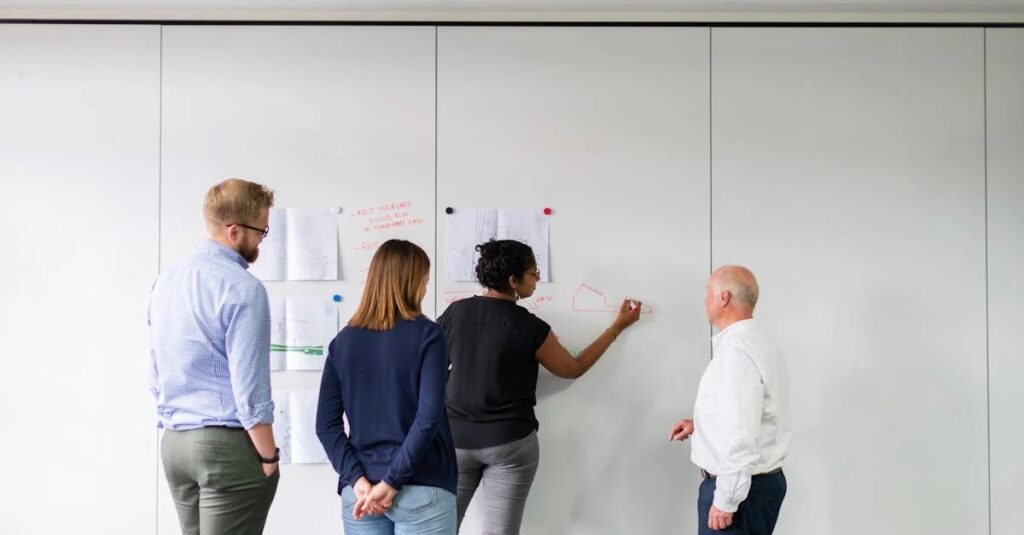In today’s fast-paced world, personal development skills have become essential for achieving success and fulfillment. These skills empower individuals to enhance their capabilities, improve relationships, and navigate challenges with confidence. Whether it’s mastering time management or honing emotional intelligence, the right personal development skills can transform one’s life.
Exploring examples of these skills reveals a wealth of opportunities for growth. From effective communication to goal-setting techniques, each skill plays a vital role in personal and professional advancement. By understanding and implementing these skills, individuals can unlock their potential and create a more balanced, productive life.
Personal Development Skills Examples
Personal development skills encompass a range of abilities and competencies that enhance an individual’s capacity to grow personally and professionally. These skills enable individuals to improve self-awareness, build confidence, foster interpersonal relationships, and achieve personal and professional goals. Key personal development skills include:
- Emotional Intelligence: Recognizing and managing emotions in oneself and others.
- Effective Communication: Expressing thoughts clearly and actively listening to others.
- Time Management: Prioritizing tasks to use time efficiently and achieve goals.
- Goal-Setting: Defining specific, measurable, achievable, relevant, and time-bound objectives.
- Critical Thinking: Analyzing situations thoughtfully to make informed decisions.
- Adaptability: Adjusting to new conditions and overcoming challenges with flexibility.
- Self-Motivation: Taking initiative and pursuing goals without external pressure.
- Problem-Solving: Identifying issues and implementing effective solutions.
- Conflict Resolution: Navigating disagreements constructively to achieve positive outcomes.
By developing these skills, individuals enhance their effectiveness in various aspects of life, leading to greater satisfaction and professional success.
Common Personal Development Skills Examples
Personal development skills encompass various abilities that enhance individual potential. Below are key examples that significantly impact personal and professional growth.
Communication Skills
Communication skills involve effectively conveying ideas, listening actively, and engaging with others. Proficient communicators adapt their messaging to diverse audiences, ensuring clarity and understanding. Skills include:
- Verbal Communication: Articulating thoughts clearly in discussions and presentations.
- Nonverbal Communication: Utilizing body language, facial expressions, and eye contact to support spoken words.
- Listening Skills: Actively absorbing what others say to foster understanding and connection.
- Written Communication: Crafting clear emails, reports, and documents that convey information succinctly.
Time Management
Time management skills focus on prioritizing tasks and optimizing productivity. Mastering these skills helps individuals allocate time effectively, balancing professional responsibilities and personal commitments. Key elements include:
- Prioritization: Identifying and addressing tasks based on urgency and importance.
- Goal Setting: Establishing specific, measurable objectives that guide time allocation.
- Planning: Creating daily or weekly schedules to visualize and organize tasks.
- Delegation: Assigning responsibilities to others to enhance efficiency and reduce workload.
- Self-Awareness: Understanding personal emotions and their effects on thoughts and behavior.
- Self-Regulation: Managing emotional responses to maintain control under pressure.
- Empathy: Recognizing emotions in others and responding appropriately to their feelings.
- Social Skills: Building rapport and navigating social complexities to strengthen connections.
How to Develop Personal Development Skills
Developing personal development skills involves structured approaches and continuous learning. Focusing on actionable strategies helps individuals enhance their capabilities.
Setting Goals
Setting goals creates a clear direction for personal and professional growth. Specific, measurable, achievable, relevant, and time-bound (SMART) goals provide a framework for tracking progress. Individuals should prioritize short-term and long-term goals by writing them down, reviewing them regularly, and adjusting as necessary. Utilizing tools like vision boards or digital apps can aid in visualizing objectives. Engaging in regular reflection on achievements fosters a sense of accomplishment and motivation to pursue new challenges.
Seeking Feedback
Seeking feedback facilitates continuous improvement and self-awareness. Constructive feedback from peers, mentors, or supervisors offers insights into strengths and areas for growth. Individuals should actively request feedback by asking specific questions about their performance. Embracing feedback with an open mind enables constructive criticism to translate into actionable growth strategies. Maintaining a feedback journal helps track responses and progress over time, reinforcing commitment to personal development.
Benefits of Enhancing Personal Development Skills
Enhancing personal development skills leads to numerous advantages that significantly impact both personal and professional aspects of life.
- Increased Self-Awareness
Enhancing personal development skills boosts self-awareness. It helps individuals recognize their strengths and weaknesses, leading to informed decision-making. - Improved Communication
Developing these skills fosters effective communication. Individuals express ideas clearly and listen actively, strengthening relationships in personal and professional settings. - Better Time Management
Mastering time management skills results in improved productivity. Individuals learn to prioritize tasks, set achievable goals, and eliminate distractions, maximizing efficiency. - Enhanced Emotional Intelligence
Strengthening emotional intelligence leads to better relationships. Individuals develop empathy and social skills, allowing them to navigate social dynamics more effectively. - Increased Adaptability
Cultivating adaptability skills prepares individuals for change. It builds resilience and encourages a positive attitude toward challenges. - Stronger Problem-Solving Abilities
Improving problem-solving skills equips individuals to analyze situations critically. They can identify solutions efficiently, leading to more effective outcomes. - Greater Self-Motivation
Enhancing self-motivation drives individuals toward their goals. It fosters a proactive mindset that encourages persistence despite obstacles. - Enhanced Conflict Resolution
Developing conflict resolution skills allows individuals to manage disputes constructively. They learn to address issues calmly and find mutually beneficial solutions. - Heightened Confidence
Building personal development skills boosts confidence. Individuals feel more capable of facing challenges, which impacts overall satisfaction and success. - Opportunities for Growth
Focusing on personal development opens doors to new opportunities. Individuals are better prepared to pursue new roles, responsibilities, or career advancements.
Personal development skills are essential for anyone looking to thrive in an ever-changing environment. By focusing on skills like emotional intelligence and effective communication, individuals can enhance their relationships and navigate challenges with ease. The journey of self-improvement is ongoing and requires commitment to learning and growth.
Embracing these skills leads to greater self-awareness and confidence, ultimately paving the way for personal and professional success. As individuals strive to unlock their full potential, they’ll find that the benefits of developing these skills extend far beyond their immediate goals, enriching their lives in countless ways.



